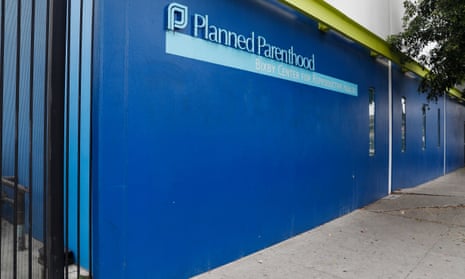How many people to expect?
It’s the question anguished reproductive care providers in California are grappling with after the US supreme court voted to overturn the federal right to abortion.
With more than half of US states set to outlaw abortion, California has vowed to become a “sanctuary” for people seeking reproductive care. The state has putforward a package of legislation to expand access for residents and support people seeking abortions from out of state. The state’s governor on Friday signed a bill protecting patients and abortion providers in California from civil liability.
Researchers estimate that California could see a nearly 3,000% increase in the number of people whose nearest legal abortion provider is in the state. California’s annual patient load could rise from from 46,000 people to 1.4 million, according to a Guttmacher Institute report.
Providers in the state have been preparing for the moment for months.
Jessica Pinckney, the executive director of Access Reproductive Equality, said calls to the California-based abortion fund’s healthline, through which people can get logistical and financial support to obtain an abortion, have doubled. The group is also seeing an influx of callers from Texas, which adopted strict abortion restrictions last year, and has offered support to nearly 30 people, 10 times as many as in previous years.
“We have known for quite some time that we would have to rise to this occasion,” Pinckney said. “We are trying to fill a need where the federal government and state governments have failed their people.”
Clinics have already seen rising numbers of patients from states with restrictive abortion laws, such as Texas, and they are preparing for more. Planned Parenthood Affiliates of California says its clinics have seen an increase in patients from Texas and Arizona and is treating roughly 1,500 out-of-state patients each month, a large proportion of whom are seeking abortion services.
“I think it’s going to be hard to tell what the surge is going to look like. Folks will be looking to California to get the care that they need,” said Lisa Matsubara, the general counsel and vice-president of policy of Planned Parenthood Affiliates of California. “We’re gonna do everything we can here … but that does not replace being able to get care in their home state. Some people are just not going to be able to travel and that’s the devastating part of this decision today.”
FPA Women’s Health, which has 25 offices across California, is also reporting an uptick in out-of-state patients. “We have the capacity to see them. So far it is not outstripping supply. We’ve been able to manage the demand,” said a spokesperson.
Still, FPA Women’s Health is expanding capacity. The clinics plan to treat more California patients via medication abortion by mail, in order to preserve further access to surgical abortions for those coming from out of state.
“We have streamlined access in our 11 surgical clinics to accommodate patients who choose to fly into California for care and fly home immediately,” the practice said in a statement.
Women’s Options Center, the hospital-based clinic at the University of California, San Francisco, is preparing to expand its abortion services, but doing so will require hiring more staff, which cannot happen until it is clear how many patients will need care. The pandemic has strained the larger healthcare system and cause increased burnout among healthcare workers that has led to early retirement, said Dr Eleanor Drey, the center’s director.
“I can’t say we’re able to turn on a dime and suddenly care for women around the country,” Drey said. “It’s hard to imagine being able to adequately expand services if half the country will face bans and highly restrictive laws. We know there are people who cannot travel … Our patients don’t have resources. That’s why many of them are seeking to end their pregnancies.”
Restrictive abortion laws across the US will have a significant impact on patients, disproportionately on people of color, who “already face the harsh impact of racism in healthcare and other aspects of their lives”, Drey said.
Choix, a telehealth clinic that provides medication abortion care, reported a 600% increase in visitors to its website on Friday, the day the supreme court’s decision was announced. The clinic offers services in California, Illinois and Colorado, and aims to expand to every state where it can legally provide care by next year.
“We are able to scale our operations fairly quickly in response to the need but we also want to ensure we do so in a way that is sustainable,” said Cindy Adam, a nurse practitioner and the Choix CEO. “Certainly since the leak and even more so today we are motivated to expand our work as quickly as possible … I think navigating the new legal landscape as states enact laws that will be overreaching, to say the least, will be the greatest challenge.”
Abortion care providers said they felt galvanized and were committed to expanding services in order to better support patients in a post-Roe America, but remain grief-stricken for the patients who won’t be able to obtain treatment.
“People know their lives. They know their circumstances. They know their resources – and who are politicians to interfere with their families?” Drey said. “It’s cruel and inhumane. If those justices were in the room with the people I see every day I can’t imagine how they would make such a heartless decision.”
